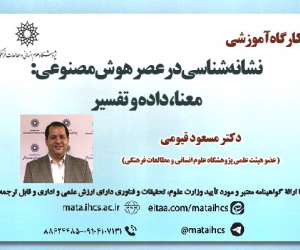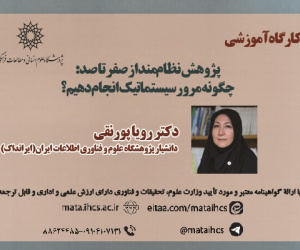بازپژوهی فقهی حقوقی حکم وضعی و تکلیفی پزشک در سقط جنین (مقاله علمی وزارت علوم)
درجه علمی: نشریه علمی (وزارت علوم)
آرشیو
چکیده
سقط جنین ممکن است به انگیزه پنهان کردن عمل شنیع زنا و حفظ آبروی خانواده، انگیزه نجات دادن مادر درصورتی که ادامه حاملگی حیات مادر یا حیات جنین و مادر را تهدید کند، پیشگیری از انتقال بیماری های خونی مانند بیماری هموفیلی، رهایی از به وجودآمدن کودک ناقص الخلقه، پیشگیری از سرایت صفات ارثی و... باشد. حکم شرعی پزشک را از دو منظر قابل مطالعه است. نخست حکم وضعی و مسئولیت پزشک در سقط جنین بوده که بر اساس علم و جهل، مهارت و عدم مهارت داشتن پزشک متفاوت است. دوم، حکم تکلیفی پزشک است که بر اساس انگیزه های اسقاط جنین تفاوت دارد. در این راستا حکم تکلیفی و مسئولیت یا رفع مسئولیت پزشک منوط به مشروعیت و عدم مشروعیت سقط است. به نظر بعضی از فقها باید علل و اسباب ضروری بودن اسقاط جنین به طور قطع ثابت شود و نتایج مترتب بر آن یقینی و ملاک و مصلحتی که از آن استفاده می شود بر ملاک و مصلحت ممنوع بودن برتری داشته باشد. از این رو شناخت حکم وضعی و تکلیفی پزشک در موارد پیش گفته و مسئولیت های مترتب بر آن لازم انگاشته می شود. نوشتار حاضر به شیوه توصیفی تحلیلی مسئولیت سقط جنین توسط پزشک و کادر پزشکی در موارد متعدد را مورد بررسی قرار داده است.Juridical-Fiqhi Investigation of the Legal and Ethical Rulings on Physician's Responsibility Regarding Abortion
Abortion may be motivated by the concealment of the heinous act of adultery and the preservation of family honor, the necessity of saving the mother's life when the continuation of pregnancy threatens the life of the mother or the fetus, the prevention of the transmission of genetic disorders like hemophilia, the avoidance of the birth of a malformed child, the prevention of the inheritance of genetic traits, and so on. The religious ruling (hukm) on the physician's responsibility can be studied from two perspectives. First, the legal (wad'i) ruling and the physician's responsibility in abortion, which varies based on the physician's knowledge, skills, and competence. Second, the ethical (taklifi) ruling on the physician, which differs based on the motivations for the abortion. In this regard, the ethical ruling and the physician's responsibility or exemption from responsibility are contingent on the legitimacy or illegitimacy of the abortion. According to some jurists, the necessary causes and circumstances justifying the abortion must be conclusively established, and the resulting benefits must outweigh the prohibition. Therefore, understanding the legal and ethical rulings on the physician and the resulting responsibilities in the aforementioned cases is deemed necessary. The present paper, recruiting a descriptive-analytical approach, examines the physician's and medical staff's responsibility regarding abortion in various cases.







